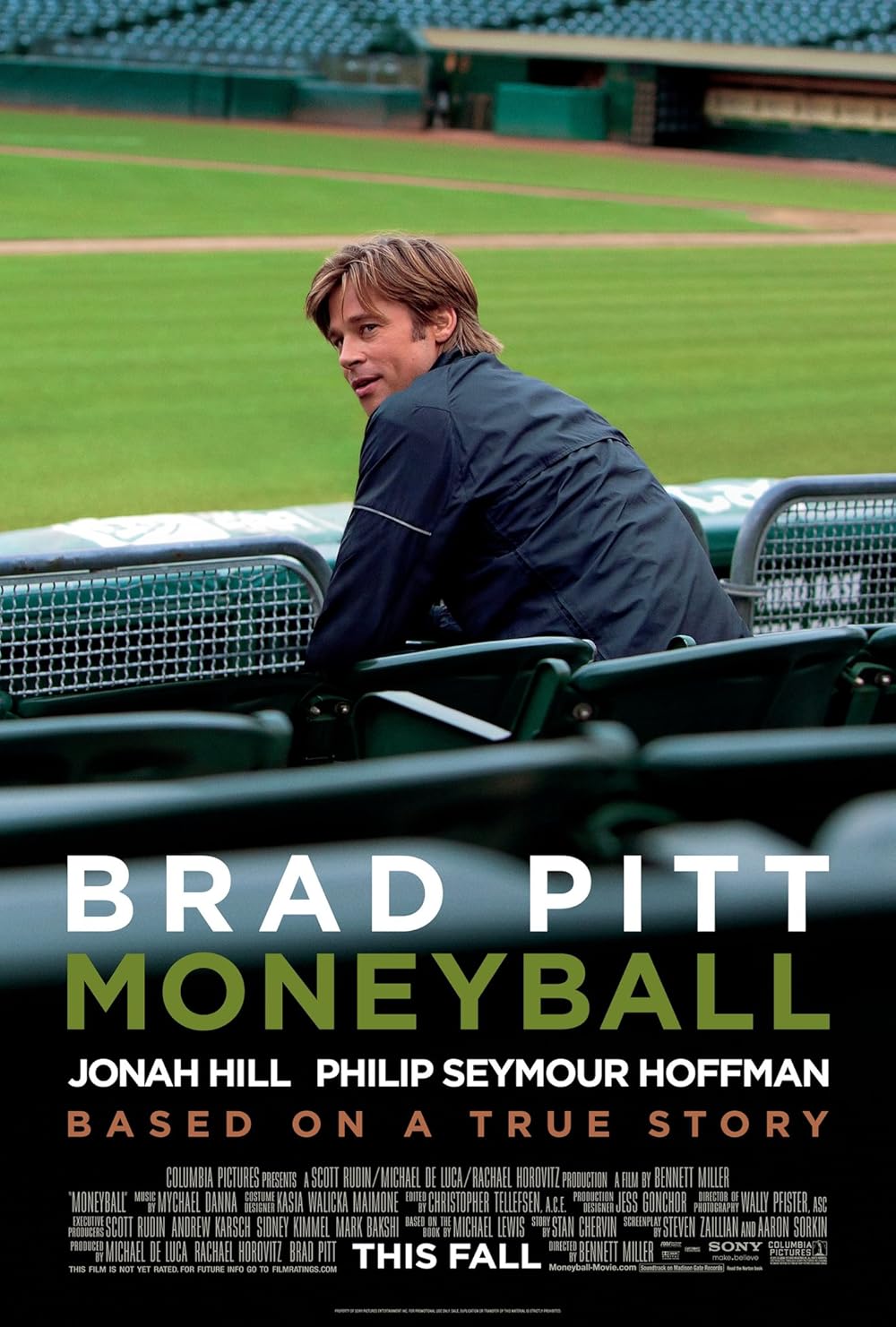Moneyball and Why Sports Movies Matter

Sports movies hold a special place in the hearts of audiences worldwide. Whether it's the last-minute goal, the underdog's triumph, or the emotional locker room speech, these films tap into something universally human. They're about more than the sport itself; they're about identity, perseverance, failure, and hope. But now and then, a film comes along that breaks the mould of what a sports movie can be. Enter Moneyball, a film that rewrites the rules, both on the field and in the editing room. In this blog, we will discuss why sports movies matter and how Moneyball changed the game.
In a recent Born to Watch episode, Whitey, Dan on the Land, and Will "The Workie" took a deep dive into Moneyball, celebrating it as one of the most innovative and most unique sports films ever made. And their analysis highlights just how much this movie defies the typical formula while still hitting the emotional beats that make sports cinema so powerful.
The Playbook: Why We Love Sports Movies
At their core, sports movies are built on underdog stories. From Rocky to The Sandlot, Hoosiers to Major League, they speak to the part of us that wants to believe hard work can beat talent, and heart can outshine money. As Whitey puts it, "there's just something about the romance of baseball… the nostalgia, the pace, it makes it perfect for cinema."
Dan adds that these films often succeed because they translate the drama of sport into human terms. "We grew up on sports movies. They're about more than the score, they're about character, resilience, and community."
The key is accessibility. Baseball, in particular, lends itself beautifully to the film medium. It's a slower-paced game, with clean framing and numerous one-on-one moments. The mechanics are simple enough to follow, even for non-fans. "You don't have to be an MLB fanatic to care whether Roy Hobbs knocks it out of the park," Will says. "The good ones make you care about the players as people first."
Moneyball Enters the Game
Released in 2011 and adapted from Michael Lewis's bestselling book, Moneyball follows the true story of Billy Beane (Brad Pitt), the general manager of the Oakland A's, as he attempts to build a competitive team with one of the lowest payrolls in Major League Baseball. Alongside a young stats nerd, Peter Brand (Jonah Hill), Beane bucks tradition and embraces analytics, specifically, the now-famous sabermetrics approach, to find undervalued players who can get on base.
But unlike other sports films, Moneyball isn't about the games. It's about the people behind the scenes, the cold mechanics of team-building, and the emotional toll of change. There are no sweeping speeches before the big game. There are barely any actual baseball sequences. And somehow, it's riveting.
Whitey sums it up best: "It's a movie about math and hunches, and yet you're glued to the screen the whole time. That's the magic of this film. It makes boardroom tension feel like the ninth inning of the World Series."
A Different Kind of Underdog
What makes Moneyball particularly unique is that it flips the traditional sports narrative. The A's aren't a ragtag group of loveable misfits pulling together for a final shot at glory, they're a data experiment. Players are selected for their on-base percentage, not their charisma. The manager (played by Philip Seymour Hoffman) is openly hostile. The scouts are dinosaurs. And the emotional arc belongs not to the players, but to Billy Beane, a man haunted by his own failures and desperate to change the system that betrayed him.
"It's not a movie about winning," Dan notes. "It's a movie about not selling out. It's about sticking to your guns, even when the entire world says you're wrong."
And that's what elevates Moneyball above its peers. It's not about achieving a Hollywood ending; it's about redefining what success means. When the A's go on their historic 20-game win streak, it feels less like triumph and more like validation. It's not about the championship; it's about proving the system can change.
The Power of Subtlety
Brad Pitt delivers one of his most restrained performances as Billy Beane. The Born to Watch crew couldn't stop praising how he walks the line between vulnerability and authority. "He's constantly simmering," Will says. "You get the sense that he's on the edge, trying to hold it all together."
And Jonah Hill's Peter Brand, though a fictionalised composite character, brings a quiet, anxious intelligence that balances Pitt's bravado. The chemistry between the two is understated but essential. "It's all in the silences," Dan points out. "The awkwardness. The unspoken panic of being the guy whose numbers are suddenly running a whole team."
Even the cinematography reflects the film's unusual tone. There are no slow-motion glory shots. No rousing montages. Instead, the camera lingers on awkward meetings, quiet car rides, and hallway standoffs. It's as much a workplace drama as it is a sports film, and that's precisely the point.
Sports as Metaphor
Like the best sports films, Moneyball uses its subject to explore broader themes. It's about innovation, resistance to change, and the cost of being first. It's also about redemption, not in the form of a trophy, but in the form of a man coming to terms with his past.
The final scene, in which Beane drives away listening to a recording of his daughter singing, is quietly devastating. He's turned down the biggest offer of his career. He may never win a championship. But he's finally made peace with his decisions. That's a victory of a different kind.
Why Moneyball Still Matters
More than a decade on, Moneyball remains one of the most relevant sports films ever made. In an era dominated by data, salary caps, and player trades, it predicted the evolution of professional sports. But more importantly, it showed that a sports movie doesn't need to follow the traditional formula to land a knockout punch.
As Whitey says, "It's not about the players. It's not about the games. It's about changing the game."
And that, perhaps, is what makes Moneyball one of the greatest sports movies of all time, not because it plays by the rules, but because it rewrites them.















